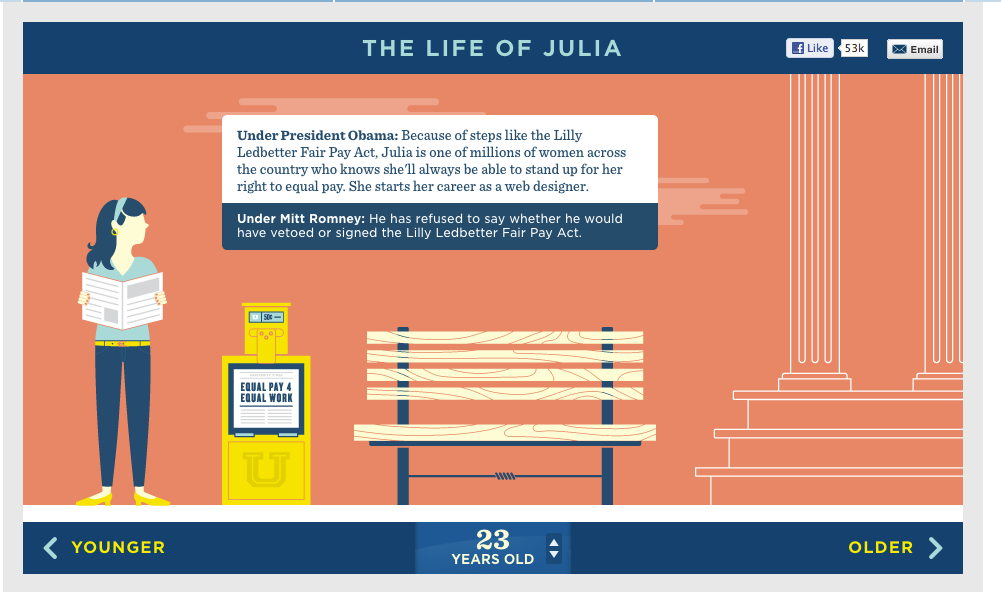
Not surprisingly, the Life of Julia has received harsh criticism from conservative activists, especially Tea Party women. At last month’s Smart Girl Summit, sponsored by Smart Girl Politics Action (a leading Tea Party organization for conservative women activists), speaker after speaker refuted the Julia campaign as sexist propaganda, which they argue portrays women as helpless victims in need of government largesse.
However, whether such a framework holds larger appeal to the American electorate, and especially women voters, remains debatable. In November 2011, PRRI found that an overwhelming majority of Americans say that the government needs to do more, not less, when it comes to reducing the gap between the rich and the poor. A majority (53%) of Tea Party supporters and a surprisingly large percentage of Republicans (43%) agree that addressing income inequality was a job that entailed more government involvement. Nearly three-in-four (71%) women (compared to 62% of men) and (55%) of white evangelical Protestants also believe that the government should be more active on this issue.
Americans also broadly support government policies designed to aid the poor: nearly 7-in-10 (69%) Americans oppose making cuts to federal funding for social programs that help the poor as a way to reduce the deficit, a view that is shared by a strong majority of men (69%), women (66%), evangelicals (58%), and married folks (67%). PRRI found that nearly half (49%) of Tea Party supporters oppose cutting federal funds that help the poor as a way to reduce the deficit, while a slim majority (52%) oppose cutting federal funds given to religious organizations that help the needy. By contrast, most Americans (69%) support the “Buffett Rule”—increasing taxes on people making more than $1 million a year—as a means to control deficit spending.
It is not for naught that the Obama campaign chose to highlight the fictional life of Julia as opposed to Julian in its online campaign graphic: historically, women have been more supportive of social welfare programs than men. That divide has driven the gender gap in American politics, characterized by women’s greater tendency to vote Democratic. Women’s views on social and tax policy tend to be more liberal than men’s, although many men have reservations about cutting federal programs for the neediest, too. The PRRI data show the uphill battle that Tea Party leaders—especially those Mama Grizzlies, as Palin likes to call them—face in targeting their message to women voters.